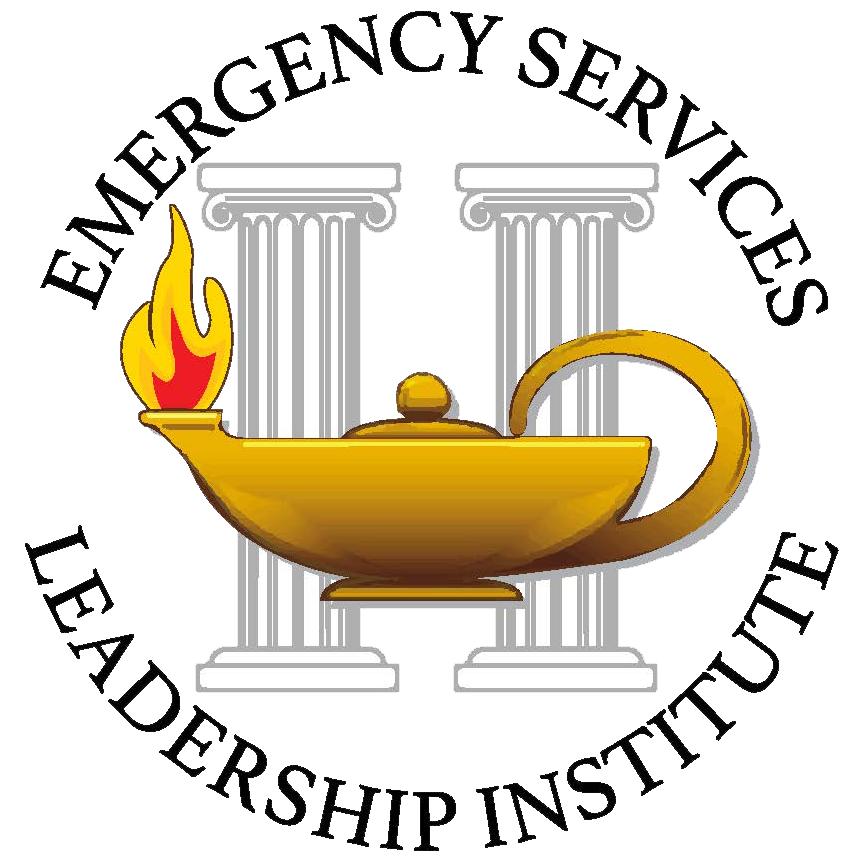Emergency Services Leadership Institute (ESLI) Program Provide Value Added
Emergency Services Leadership Institute (ESLI) Program Provide Value Added
By Francis J. Ennist, Retired Fire Chief
 In July 2000, the Emergency Services Leadership Institute (ESLI) initiative, in cooperation with the Florida Fire & Emergency Services Foundation (FFESF), was completed and disseminated among Florida’s fire service members. This effort was led by William L. Bingham, Fire Chief (Retired) and later carried on my Neal DeJesus, Fire Chief (Retired). Many instructors assisted in the development and teachings of the program. In 2011, a modification was made when the current six 6) modules became the standard. In January 12, 2012, after months of careful consideration and feedback from instructors and participants, as well as the execution of participant survey instruments, a restructured version of the ESLI program was rolled out among Florida’s mid-level and chief fire officers. The intent of ESLI is to provide instructors and students with a positive and relevant educational experience, specific to local and contemporary issues, and programming that is not readily available in other offerings in this packaging structure. As a result of a six-month final review process, the following modules were established, with significant content changes that will add to the program’s value.
In July 2000, the Emergency Services Leadership Institute (ESLI) initiative, in cooperation with the Florida Fire & Emergency Services Foundation (FFESF), was completed and disseminated among Florida’s fire service members. This effort was led by William L. Bingham, Fire Chief (Retired) and later carried on my Neal DeJesus, Fire Chief (Retired). Many instructors assisted in the development and teachings of the program. In 2011, a modification was made when the current six 6) modules became the standard. In January 12, 2012, after months of careful consideration and feedback from instructors and participants, as well as the execution of participant survey instruments, a restructured version of the ESLI program was rolled out among Florida’s mid-level and chief fire officers. The intent of ESLI is to provide instructors and students with a positive and relevant educational experience, specific to local and contemporary issues, and programming that is not readily available in other offerings in this packaging structure. As a result of a six-month final review process, the following modules were established, with significant content changes that will add to the program’s value.
- Human Resources and Labor Relations Module (HR)
- Personal Qualities, Leadership, and the Organization Module (PQ)
- Government Relations and Public Policy Module (GR)
- Marketing Fire and Emergency Services Module (MF)
- Finance and Budgeting Module (FB)*
- Emergency Management Module (EM) (added in 2012)
As part of the program reconstruction, an Instructor Guide was developed which addresses the general competencies and other performance expectations deemed essential, and which emphasizes the mission, vision, and values of ESLI. The use of Research Tools, Group Discussion, Team Exercises, Case Scenarios, Student Presentation, Role Playing, and Debate are encouraged. One intended and anticipated outcome of this curriculum is to stimulate dialogue among the stakeholders of the fire and emergency service professions regarding the best thinking and best practices of their colleagues as to what constitutes competent instruction. It was predetermined that much of what is taken away from this program is generated by information-sharing among participants throughout each session.
The purpose of ESLI presentations was to;
- provide an educational experience that is contemporary, constructive, and relevant, and which addresses important issues concerning the fire and emergency services;
- to provide fire and emergency service leaders with an understanding and knowledge to transform their organizations and allow new opportunities and growth;
- to provide a prominent and respected educational offering designed to converge yesterday’s lessons and today’s achievements with tomorrow’s challenges for the future benefit of Florida’s fire service.
This format worked well and classes continued to fill with fire services leaders and those aspiring to be. Fast forward to the year 2022, we had just come out of the pandemic and the fire service, like many walks of life were recovering. Our former Executive Director, Chief Ray Colburn, Fire Chief (Retired) in his forward thinking, created an ESLI committee and called for its first meeting to be on August 11, 2022. The committee consisted of Executive Director Ray Colburn, Deputy Executive Director Ngoc Huynh, Frank Ennist, Fire Chief, Retired, Dr. Leland Greek, Fire Chief, Retired and Senior Member of the FFCA Board, Kevin Easton, Fire Chief and Chair of the Instructors Section, and Dr Jeff Lindsey with the University of Florida.
The committee met and discussed the future of ESLI, where we are vs. where we want to be. The committee also looked at the current list of instructors and determined that additional depth may be necessary. Lastly, the committee looked at the possibility of additional, elective classes that may be beneficial to the fire service. Admittedly, there was a slow start mainly due to a major disruption known as Hurricane Ian.
With Ian gone and cleanup beginning, the committee went back to work identifying work needed for the ESLI program. Two things happened simultaneously. First, the committee, along with help from the ESLI instructors, began reviewing content for each module in an effort to update the material. Secondly, the committee viewed each generalized outcome and aligned them with a job performance requirement (JPR) in several NFPA standards. Each course was reviewed and aligned so that today, most every course offers fresh and updated information.
The ESLI committee also identifying some key areas that the program fell short on, so we began creating elective courses to present to fire service professionals. The first elective course is Community Risk Reduction with an expected release for registration in November 2023. The second is EMS Leadership and Operations, with no immediate release date. The last is The Fire Officer’s Role in Health and Safety, again with no immediate release date.
Having completed the work on the 6 core classes, the committee met with The Bureau of Fire Standards and Training to see if our program would be worthy of course equivalency. The criteria that we had to meet were a matching number of hours for the courses requested; matching JPR’s to the courses requested; and lastly each JPR was covered in the presentation of the course. After much discussion, the state agreed to provide equivalency if a fire service member completes all 6 core courses of ESLI and the elective Community Risk Reduction. The equivalency courses are Chief Officer, a 60-hour course toward gaining Fire Officer III certification, and Managing Personnel in the Fire Service, a 45-hour course toward Fire Officer IV. This equivalency will be offered to fire service members dating from January 2012 to present time and here is the expected process;
- Students of ESLI must complete the 6 core modules and the new course Community Risk Reduction, to be introduced in October or November 2023.
- Students that have completed these 6 core courses from January 2012 and complete the new course Community Risk Reduction will be eligible for the equivalencies.
- The FSFC will establish the process for obtaining the equivalency, however, all students must present all 7 certificates to gain the equivalencies.
- Presentation of the 7 certificates from the period of January 2012 to current will earn the students the equivalencies of Chief Officer, a Fire Officer III course and Personnel Management for the Fire and Emergency Services, a Fire Officer IV course.
- There will not be any other substitutions or equivalencies offered or accepted.
We, the ESLI committee, are very proud of our partnership with the Bureau of Fire Standards and Training. We wish to thank Bureau Chief Mark Harper, Assistant Superintendent Eugenia Tucker and Training Supervisor Robert Coyne for their assistance in providing the value add to our program.
The hard work of this committee and the collaboration with the Bureau of Fire Services and Training has enabled all fire service leaders the opportunity to gain an outstanding peer networking and educational program, as well as, gain credits toward certification as Fire Officer III and IV. Congratulations to the ESLI committee, WE DID IT!

